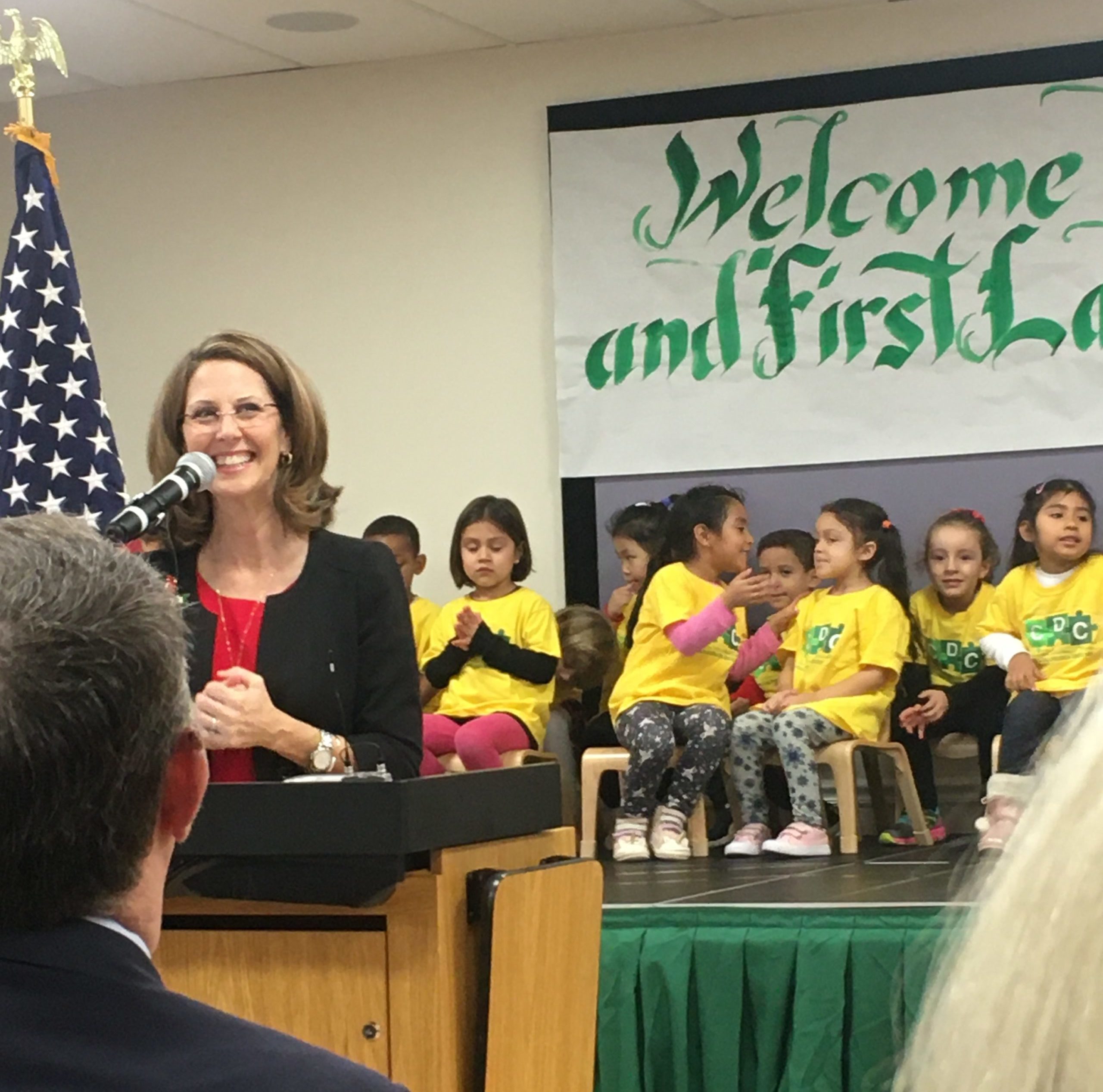

Right now, the most frequent question we are asked at Voices is, “So, how ARE children being impacted by this pandemic?” The most honest answer is that only time will tell what the long-term impact will be, but do we know that children are in crisis.
We hear directly from parents and children or youth on how they’re doing. We also have a better sense for how children are faring from state agency partners and nonprofits directly serving children and families. Direct service providers tell us about the endless pivots they’ve made to connect with families from telehealth and home visits to more safety net services, such as diaper giveaways. The pandemic has caused serious strife for families worried about eviction during a public health crisis and economic blows due to the closure of child care programs, many of whom are still struggling to pay mortgage or rent.
It’s important to note that what we’re hearing varies widely along lines of income and race, where higher-income families and those afforded the privileges connected to having white skin, are much less likely to feel the stresses or experience disruption to their day-to-day lives.
The Census Household Pulse survey (found on our KIDS COUNT Data Center) reveals the following:
The reality is that children already experiencing hardship along pre-pandemic racial inequities are dealing with a greater burden. Poverty rates for Black children is 28 percent, 19.8 percent for Hispanic children and 16.1 percent for Indigenous children, compared to 8.9 percent for white children. Most recent figures show children in Virginia are more likely to experience economic hardship than before the pandemic.
However, there is a lot we do not know. And that concerns us deeply. It should trouble you, too.
What we still don’t know is how much this isolated time will impact young children’s development and learning. We don’t know how continuing to witness trauma and experience loss will impact older children’s mental health. We don’t know how some families are trying to keep all the balls in the air of keeping their family safe and choosing between going back to work and closed child care programs and virtual-only schools and how that stress will impact their family stability.
It will take a while to get all of these answers and to unlock all of the ways that children have experienced the pandemic. To us, the answer to “how are children being impacted?” is—we must keep our attention on children in a way that is high profile, data-informed, equitable, and intersectional. The way to do that is to make the Governor’s Children’s Cabinet permanent.
Governor Northam and First Lady Pam Northam have used the Children’s Cabinet to focus on cross-cutting issues such as early education, food security, and trauma-informed care. In response to the pandemic, these topics remain extremely relevant and critically important to rebuilding systems and revising policies that impact children.
Appointing a permanent advisor to the Children’s Cabinet would ensure that Virginia is prepared to investigate and address the ways children have been impacted that pulls together the information and evidence from multiple agencies and partners. The Cabinet creates a lens to consider children outside of the school setting or in a health clinic and within the contexts that they live– with families and in communities. This look will inform where and how to meet children’s mental health needs, how can we better equip parents when they feel hopeless and depressed, and where is our safety net struggling to support families to provide housing stability and food security.
The future of Virginia’s stability depends so much on the future of children and families. With nearly half of Virginia’s children being children of color, the solutions to the pandemic must prioritize the needs of Black and Brown children in the Commonwealth. The Children’s Cabinet is well-positioned to elevate the needs of communities of color and to engage stakeholders to outline solutions for their communities. This work requires dedicated support to engage and connect that is outside of the role of any one agency or program.
To ensure the well-being of children, Virginia must ensure that we are serving the needs of children well. The priority of children in our response to COVID-19 rest with placing children’s needs in a position of prominence in the Cabinet. A permanent advisor to the Children’s Cabinet and capacity to look at the data across our agencies and systems is a great place to begin to reform and reinvent how the Commonwealth responds and how systems can prevent further trauma and instability from occurring.
Read More Blog Posts